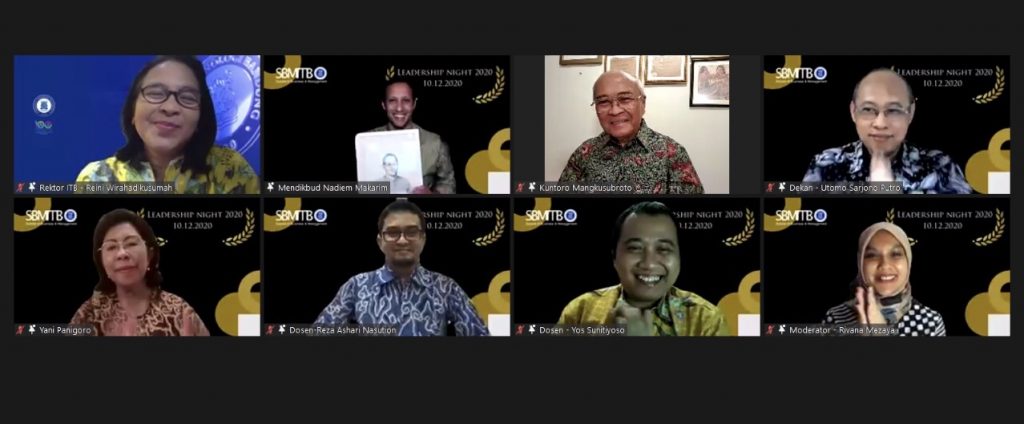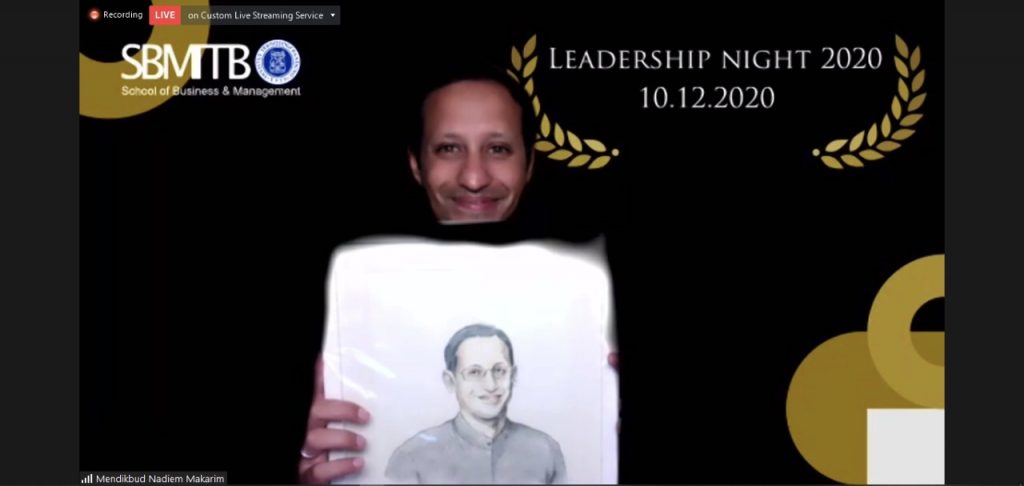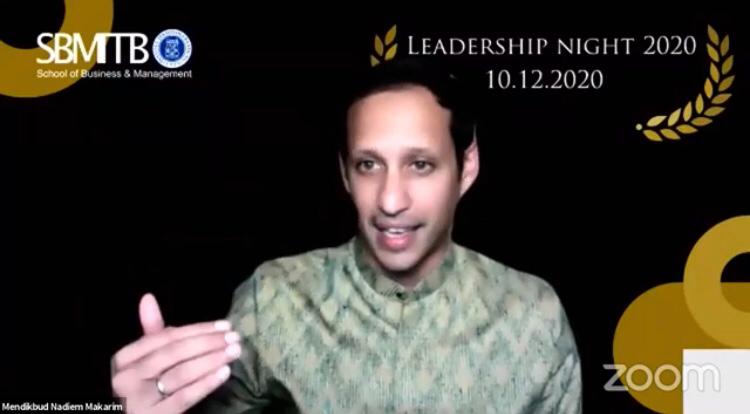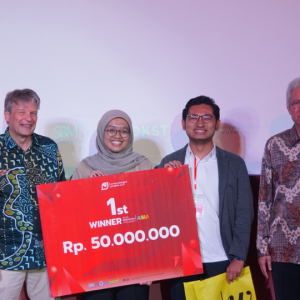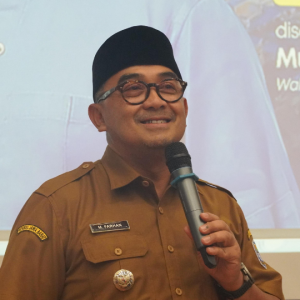Written by Student Reporter (Mitsal Athaya, Management 2022)
“The pandemic is a mighty mite,” opened Prof. Utomo Sarjono Putro, the Dean of SBM ITB at the Virtual Leadership Night 2020 (10/12/2020). “It is a phenomenon that seems small but, has a massive impact, as we all could prove. Though, this pandemic is not something that should stop us from achieving greater things,” said the Dean. The Virtual Leadership Night 2020 is an event held to give a moment of appreciation to the best students, alumni, lecturers, and staff at Jakarta campus for their achievements, which will hopefully become inspirations for others and drive them to accomplish even greater. Subsequently, students who received the TK Low Scholarship were put in the spotlight to showcase their proudest triumphs.
The event was followed up by a hearthside session with the Minister of Education and Culture, Nadiem Anwar Makarim. Previously, Nadiem was an entrepreneur and the pioneer of Gojek, Indonesia’s first startup Decacorn. After passing the ‘helm’ of his company in late October 2019, Nadiem decided to join President Joko Widodo’s Cabinet and serves as the Minister of Education and Culture. Now being a Minister, there are many unique facts about his entrepreneurial leadership journey that have become life-changing moments for Nadiem Makarim.

He began with tales of different instances that eventually built him. “The first instance was that as a child, I used to ask so many questions that my parents were called in. The same thing occurred during high school, so it later became a pattern in my educational background,” he unfolded. These instances later became an awakening to which he realized that he needed an environment where he has independence. “The systems and people restraining others from evolving are the main sources of negativity which halt the process of growth,” said the Minister to ever appear on TIME’s 100 Next Leaders in 2019. There needs to be a society that allows acceptance and openness to develop. The next occurrence was his experience in a theatre club during high school that made him understand the importance of taking risks, being confident, and that being humiliated is not merely an experience to be ashamed of (there is something to learn from everything).
Last but not least was his encounters at Brown University and Harvard University and how it led him to acknowledge the importance of knowing your true potential. “One of the reasons which influencing me the most to establish Gojek was I had to watch many friends of mine took a leap to become entrepreneur,” he said, “it is crucial to continuously learn, correct yourself, and never stop at a point just because you’re already satisfied.”
Later, he revealed a secret that eventually pushed the formation of Gojek. People would often deem ojek drivers untrustworthy, unprofessional, and have low-value. “I see the potential in them and felt that it was my responsibility to unleash their potential,” told Nadiem. As mentioned earlier too, it is paramount to recognize one’s true potential that is, oftentimes, greater than what most people believe. The opportunity to create an impact on many upcoming generations in Indonesia is simply something that Nadiem could not ignore. This mindset is also what drove him to join the President’s Cabinet.
“Not everyone can be an entrepreneur,” said Nadiem. “The most crucial part, however, is to have an entrepreneurial mindset.” He listed down three entrepreneurial traits that one can train oneself with: (1) Risk-tolerance, (2) Problem-solving, (3) Communicating. He said that in order to solve a problem, one had to take a risk. Recognizing various solutions to a certain issue, according to him, was the core value of an entrepreneur. “And communication is a skill that one must possess in order to persuade, debate, and create a team to achieve an ambition,” said the Harvard graduate.
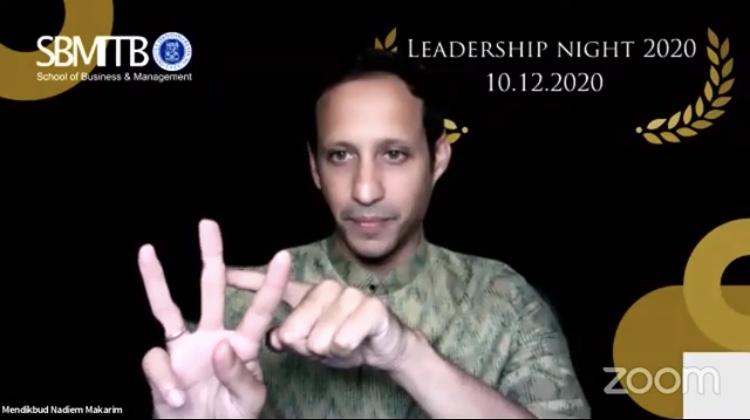
Afterward, he emphasized ways to develop these fundamental skills. The first step is to better the quality of education. He backtracked to the first encounter he had as a child which was considered an issue, “if we want the children to have an excellent education, then we must change the culture and environment around the school. That is, children should be allowed to embrace their curiosity. It is something that will help them grow, help them learn, help them know better.” Imposing changes is not an easy task. There are precautions that need to be taken to reach an ultimate point of change, which led us to the next step that is to change the way of training, leading, and finally, taking in the new generation with a different mindset. It is near impossible to change a culture without attempting to change the core of the said culture, in this case, the leaders and the teachers. Nadiem accentuated, “Give independence and let people decide what they want to achieve instead of forcing them to fulfill one that’s been set by the system. Education is not one-size-fits-all.”
